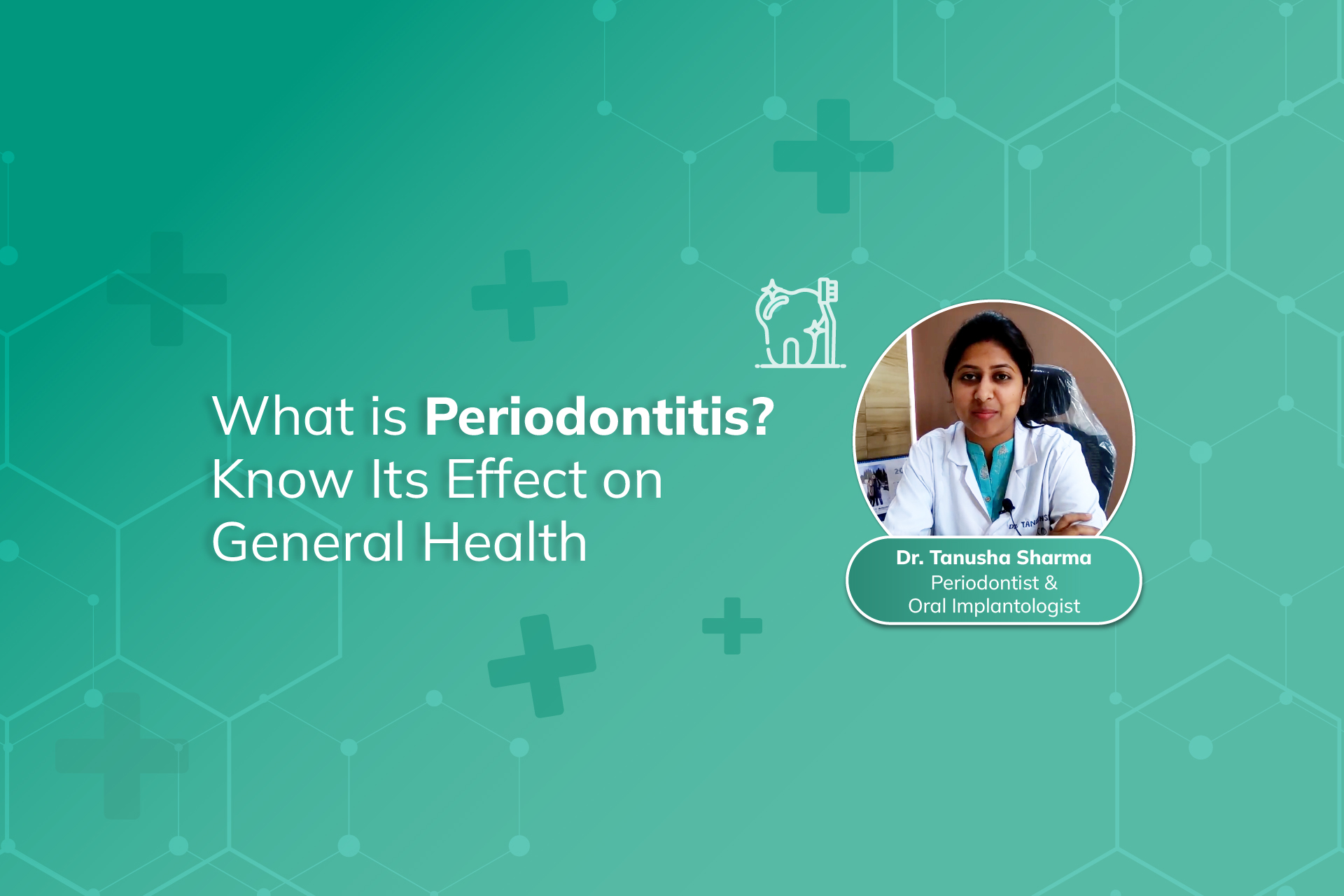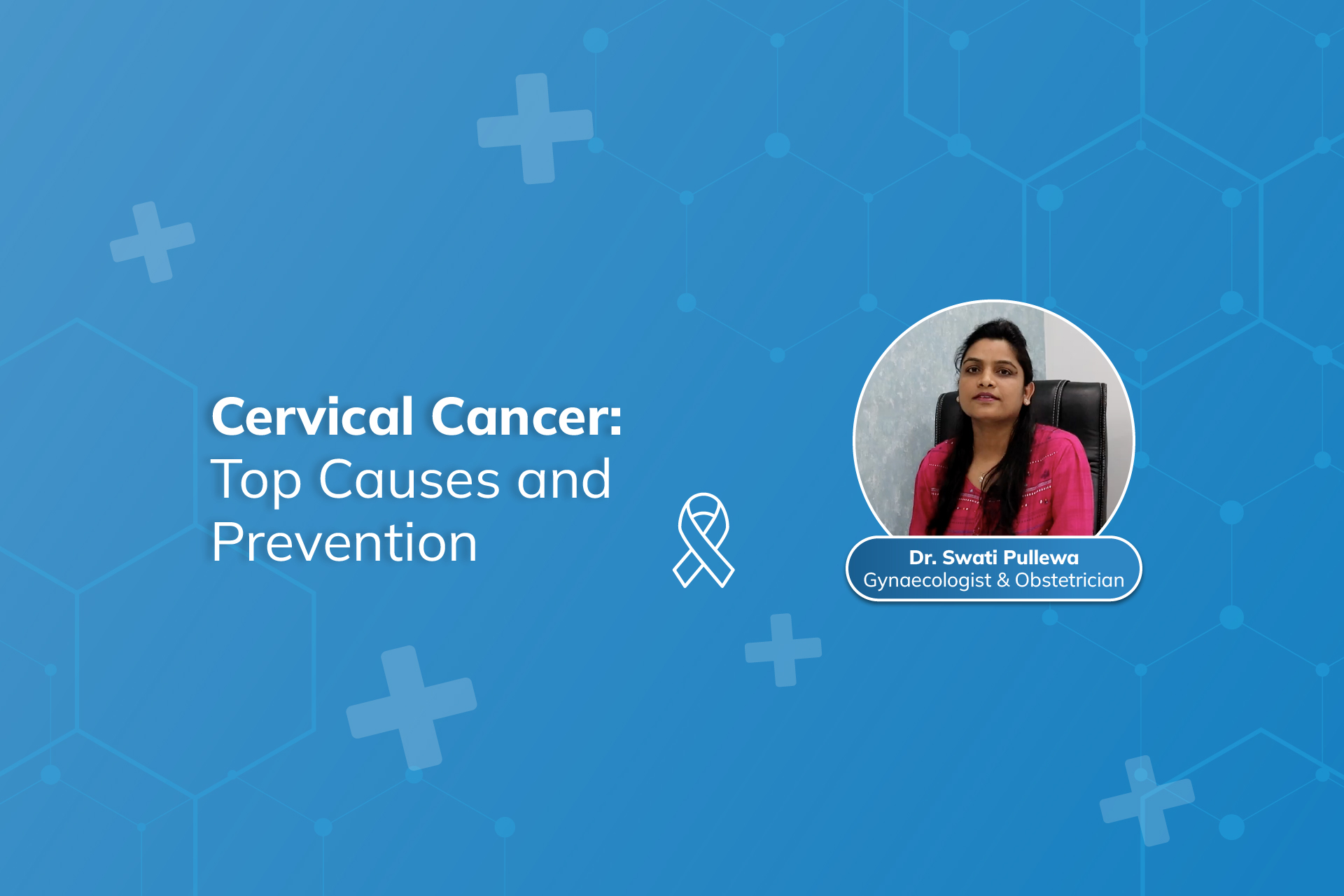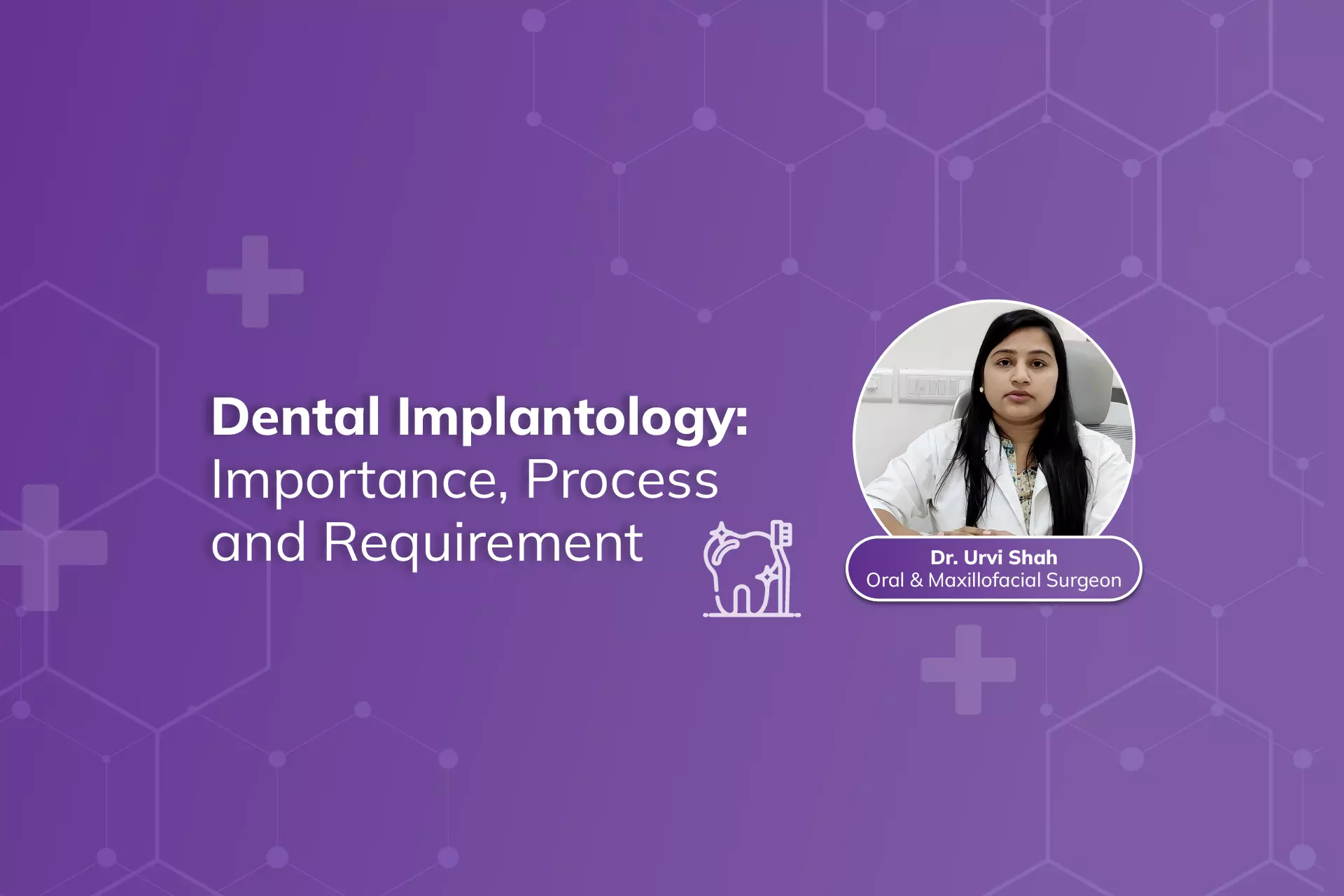Gynaecologist and Obstetrician | 5 min read
Polycystic Ovary Syndrome: Causes, Symptoms & Treatment by Dr. Prajakta Mahajan
Medically reviewed by
Table of Content
Synopsis
Polycystic ovary syndrome (PCOS) is a common hormonal disorder affecting women. The exact cause of PCOS is still unknown, but it mostly happens due to genetic, lifestyle, and environmental factors. Read these effective tips to manage PCOS by renowned doctor Prajakta Mahajan.
Key Takeaways
- PCOS causes the ovaries to produce excessive male sex hormones
- The most common symptom of PCOS is delayed or irregular periods
- Women with PCOS can develop endometrial cancer at a later age due to delayed menstruation
What is PCOS?
Polycystic Ovaries Syndrome (PCOS) is a common condition affecting the ovaries. It causes the ovaries to produce an abnormal amount of androgens – a group of male sex hormones present in a small amount in the female body. According to research, PCOS is one of the most common endocrine disorders affecting 6-10% of women worldwide. [1]
As the name suggests, in Polycystic Ovaries Syndrome (PCOS), numerous small cysts (fluid-filled sacs) form in the ovaries. However, sometimes, women can develop ovarian cysts despite not having PCOS. Let's try to understand how PCOS affects women, its causes, and treatment with renowned doctor Prajakta Mahajan, Obstetrician, Gynaecologist, and IVF consultant from FertiFlix Women's Clinic, Pune.
PCOS Syndrome
When a woman cannot produce enough hormone to ovulate (the process of releasing an egg for fertilisation), ovulation does not occur in the body. Due to the inability of the body to carry out ovulation, small cysts develop on the ovaries. The cysts on ovaries then produce high levels of androgens, which can affect a woman's menstrual cycle and cause other symptoms, known as PCOS.
The most common confusion regarding this disorder is if PCOS or PCOD is the same disease. We asked Dr. Mahajan if these two conditions mentioned above are different, and she said, "PCOS and PCOD are two different names for one disease. In addition, PCOD is very common, and every one in ten women suffers from this disorder."

PCOS Symptoms
No matter how common PCOS might be, most of us may miss out on noticing or ignore the symptoms. So we asked Dr. Mahajan to tell us about PCOS symptoms to prevent this. She said, "The most common symptom for PCOS is delayed or irregular periods. For example, a woman with PCOS might have her period after 45 days. In addition, the flow is also scanty when compared to normal."
She added further, "Since women with PCOS experience excessive male hormone secretion, acne, excessive hair fall, presence of hair on chest, face and thighs are common symptoms to look out for. Even mood swings and depression are noticeable in women suffering from PCOS."
According to Dr. Mahajan, women with PCOS have bulky ovaries, which are detected through sonography. In addition, small follicles are visible on bulky ovaries in the case of women suffering from PCOS.
If you notice or feel any of the symptoms above, try consulting a gynaecologist to know if you have PCOS. You can even book an online consultation through Bajaj Finserv Health with the best experts near you.
Causes of PCOS
The exact causes of PCOS are not clear to doctors. However, it is widely considered that high levels of androgens prevent the ovaries from ovulating, thereby resulting in PCOS. Also, factors like genes and insulin production have been linked to excessive androgens in the female body.
Dr. Mahajan says that hereditary factors are a major cause of PCOS concerns in women. "If your mother, grandmother, or aunt suffers from this disorder, you are more likely to inhabit the disease. In addition, if parents have diabetes or exhibit prediabetic symptoms, the daughter has higher chances of acquiring PCOS."
She went on to tell us that insulin resistance is observed in patients suffering from PCOS. "It's not like women with PCOS don't have sufficient insulin levels, but their insulin does not act efficiently on glucose. Due to this, excess glucose accumulates in the body, which can lead to diabetes mellitus in the future", she said.
Symptoms like low-grade inflammation are also visible in women with PCOS. This means a higher amount of White Blood Cells (WBC) in the body, which can cause problems.
Dr. Mahajan also said that hormonal imbalance is a common problem for women with polycystic ovaries syndrome. "Follicle-Stimulating Hormone (FSH) stimulates egg growth and helps control the menstrual cycle in the female body. Usually, women suffering from PCOS have low or normal levels of FSH because excessive LH hormones suppress their levels."
PCOD Problem Symptoms
When we inquired about the most troublesome PCOS symptoms or complications, Dr. Mahajan said, "Infertility is the biggest complication for women with PCOS. Because the process of ovulation does not occur in proper phases, infertility is noticeable in women with PCOS. One of the most common PCOS and pregnancy symptoms is gestational diabetes."
"On the extreme side, women with PCOS can even develop endometrial cancer at a later age due to delayed menstrual cycles," added Dr. Mahajan.PCOS Diagnosis and Treatment
When it comes to diagnosing PCOS, Dr. Mahajan said, "It is usually diagnosed through ultra-sonography, hormone profile test, and the patient's symptoms which is a common diagnosing procedure recommended by the American Society of Reproductive Medicine."
Since PCOS is a lifestyle disease, the effective treatments for the disorder are:
- Avoiding processed food and refined sugar
- Having a balanced diet with lots of fruits and vegetables
- Regular exercise
Dr. Mahajan says that modifying your lifestyle and incorporating the above steps can help reverse PCOS and its symptoms. Even in young girls with PCOS, exercise and lifestyle modification can help to manage the disorder. "If the symptoms in girls are severe and cannot be controlled with lifestyle changes, doctors usually advise oral contraceptive pills for three to six cycles to regularize periods," she added.
If you have irregular periods or male hormone-related problems like facial and chest hair, consult your nearby gynaecologist and book a test to know if you have PCOS. You can also visit Bajaj Finserv Health to read more about PCOS and associated problems for women.
References
- https://www.nutritioncareofrochester.com/article.cfm?ArticleNumber=53#:~:text=1%25%20of%20funding%20from%20the,develop%20pre%2Ddiabetes%20or%20diabetes.
Disclaimer
Please note that this article is solely meant for informational purposes and Bajaj Finserv Health Limited (“BFHL”) does not shoulder any responsibility of the views/advice/information expressed/given by the writer/reviewer/originator. This article should not be considered as a substitute for any medical advice, diagnosis or treatment. Always consult with your trusted physician/qualified healthcare professional to evaluate your medical condition. The above article has been reviewed by a qualified doctor and BFHL is not responsible for any damages for any information or services provided by any third party.



